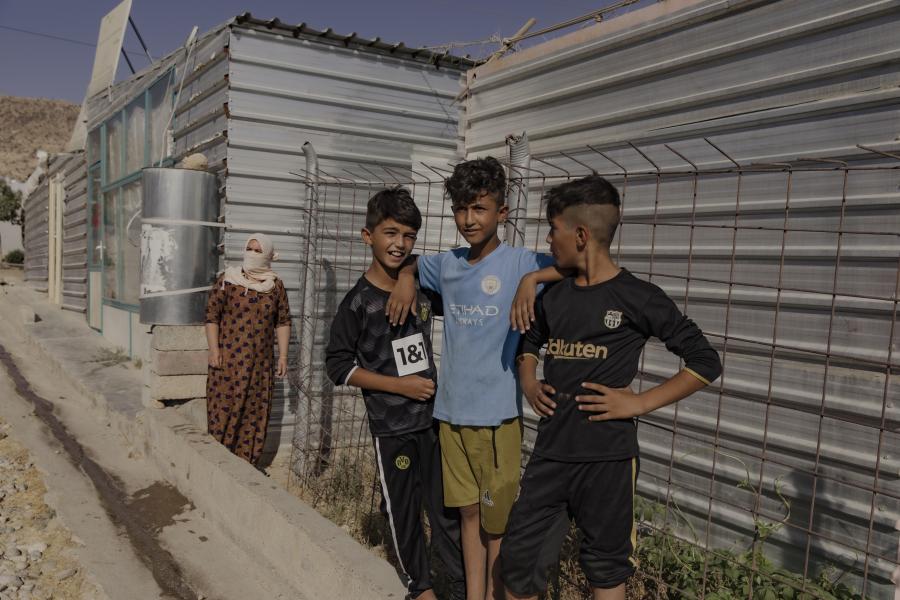2024 population planning figures
- Refugees and asylum-seekers in neighbouring countries (including Türkiye): 216,600
- IDPs: 1.14 million
- IDP returnees: 48,400
- Stateless persons: 8,000
2024 situation overview
While Iraq is experiencing relative stability and the Government’s budgetary flexibility has increased due to oil revenue increases, the country continues to face protracted humanitarian and development needs, a complex political environment, and a volatile security situation. The needs remain high in late 2023, with about 1.14 million internally displaced people (IDPs) and 5 million IDP returnees, and 25 IDP camps hosting 175,000 people in the Kurdistan Region of Iraq. Many IDPs continue to face significant barriers to return or to effective local integration. Those who have already returned also face security and protection risks, mainly from the lack of civil documentation, which impedes their ability to access basic public services such as education, health care and social security benefits.
UNHCR is transitioning from an emergency response in Iraq to a longer-term development approach, with a focus on durable solutions, under the UN Sustainable Development and Cooperation Framework. This transition means phasing out individual support for IDPs and instead focusing on strengthening the ability of national systems to provide them with services such as child protection and gender-based violence response, as members of the general population. UNHCR co-leads the newly formed Protection Platform, consisting of 75 protection partners, and is actively engaged in efforts to empower IDPs, refugees, and host communities to enhance their resilience and better equip them to mitigate protection risks and access solutions.
Young Iraqi children stand near their damaged home in their destroyed village of Nineveh after the camp they were living in was closed down in Hamam al-Alil. © UNHCR/Rasheed Hussein Rasheed
In 2024, UNHCR will further enhance the protection environment of refugees, IDPs, IDP returnees, and stateless people by strengthening their economic and social well-being. This will be achieved by enhancing their inclusion in social protection schemes and strengthening their access to national services and employment opportunities.
UNHCR will support IDPs’ inclusion by prioritizing access to civil documentation. UNHCR will continue seeking comprehensive protection and solutions strategies and promoting the sustainability of return through small-scale infrastructure projects.
UNHCR will also continue to advocate for policy and legislative reform for social and protection services with the federal Government of Iraq and the Kurdistan Regional Government.
UNHCR will seek solutions for the IDPs who still live in the 25 camps in Kurdistan, including safe and voluntary return to their areas of origin, relocation into other communities within the country, and local inclusion – for which one model is the transformation of camps into formal settlements serviced by public institutions.
In neighbouring countries, UNHCR supports more than 200,000 registered Iraqi refugees, the vast majority of whom reside in urban/non-camp settings. UNHCR provides protection, health, education, cash assistance for basic needs and livelihood support, among other services, to refugees of all nationalities throughout the year and works to achieve parity in access to protection and assistance between refugee population groups, irrespective of nationality.
Across the region, 321 Iraqis were referred for resettlement as of August 2023. UNHCR will continue to support Iraqis refugees in the region with third-country opportunities, including resettlement, which remain a critical life-saving protection tool for those most in need.
